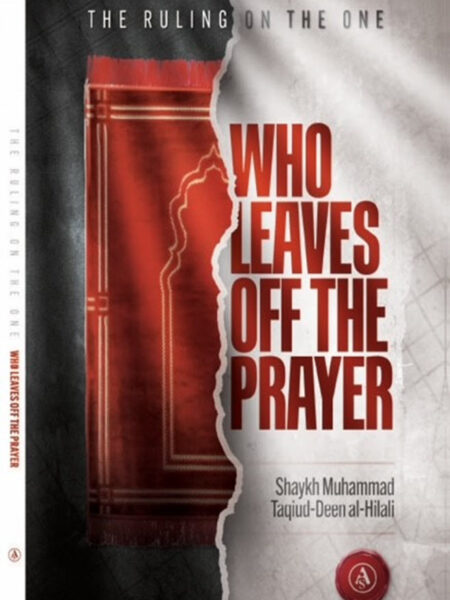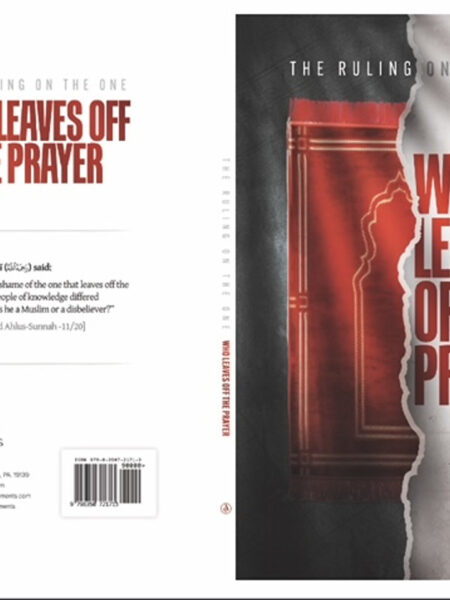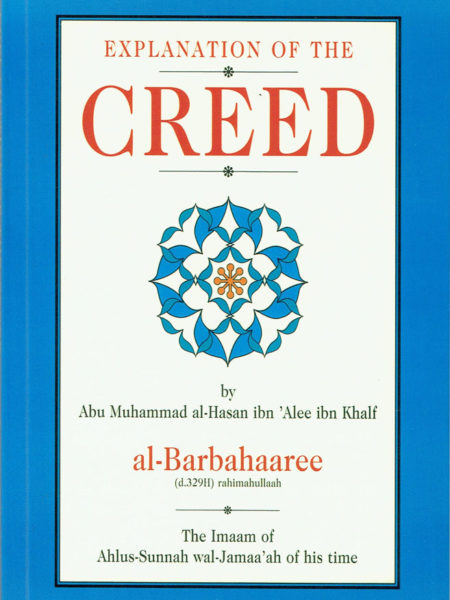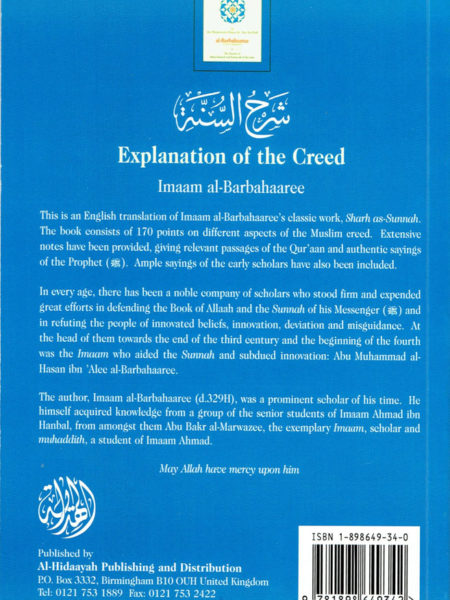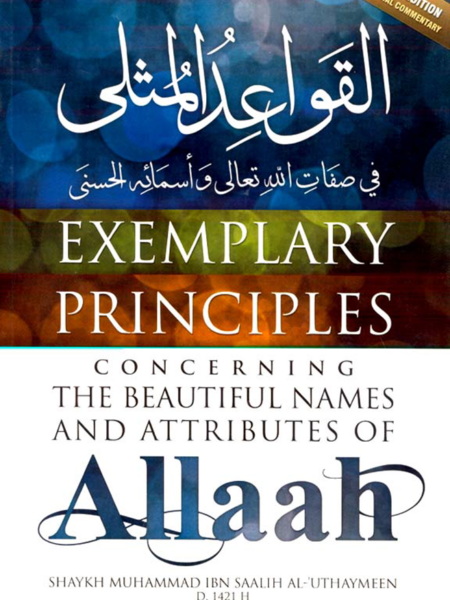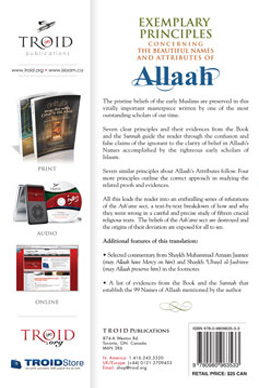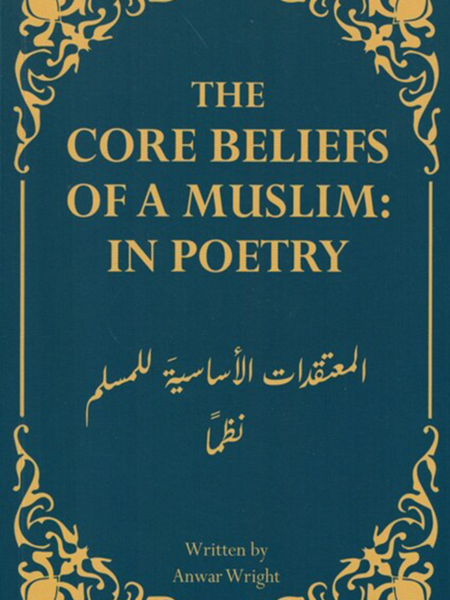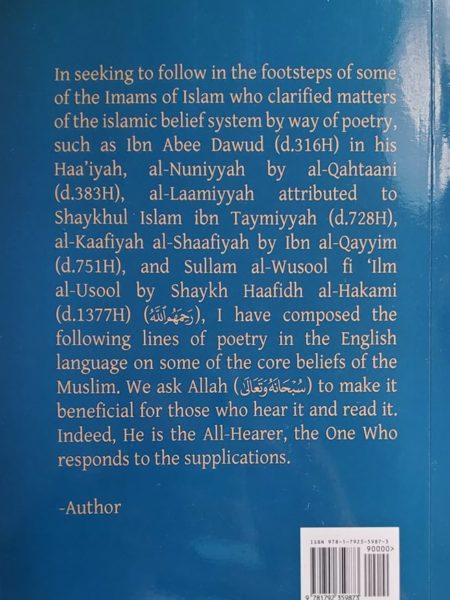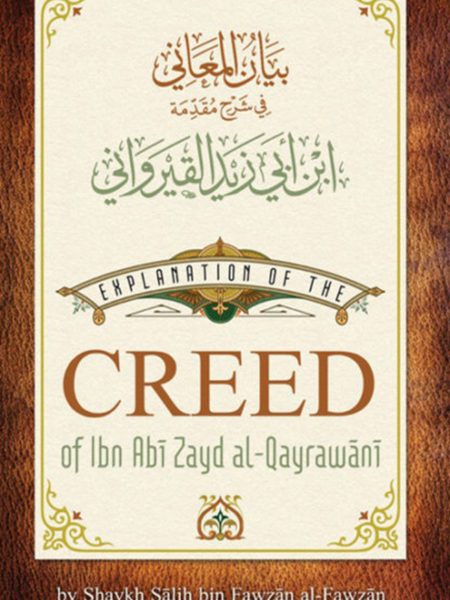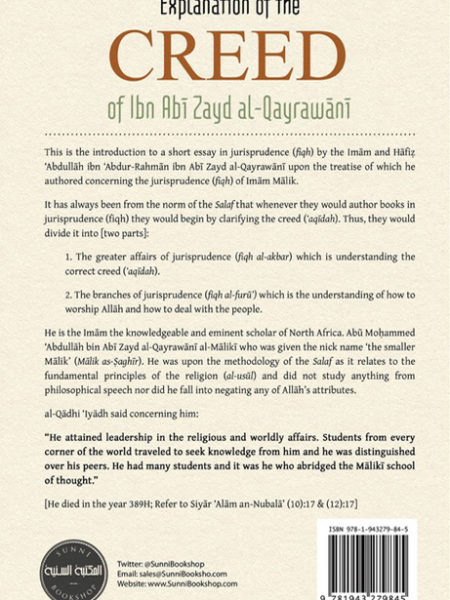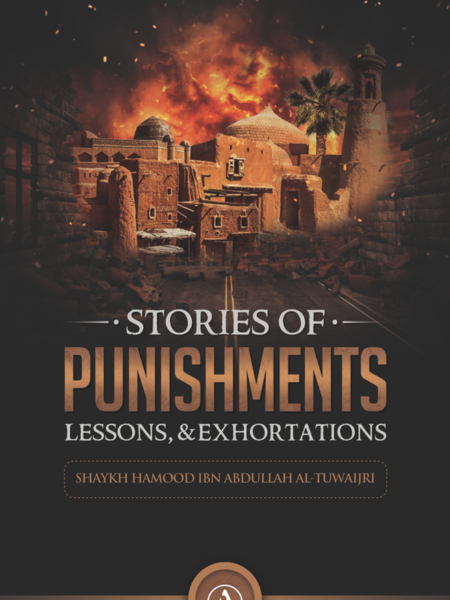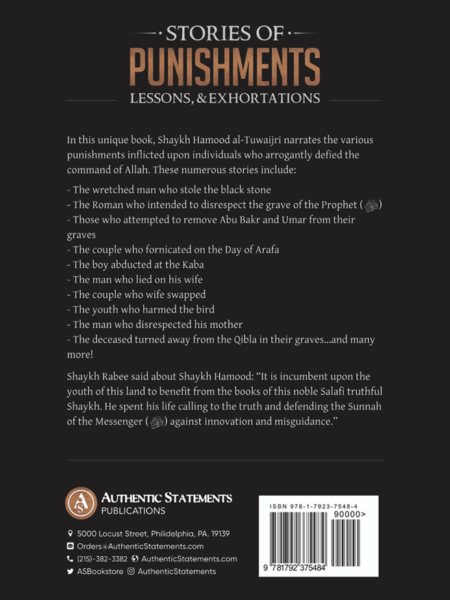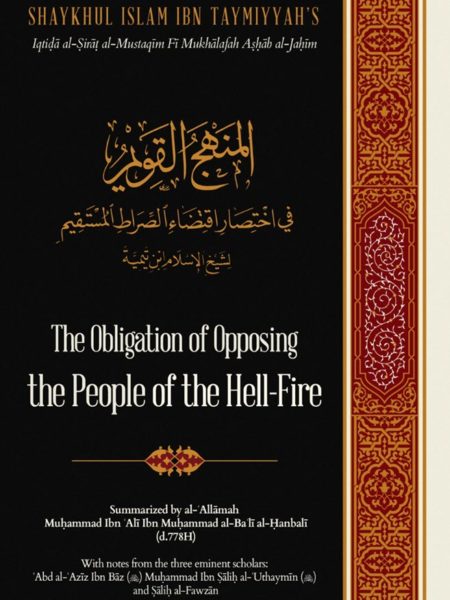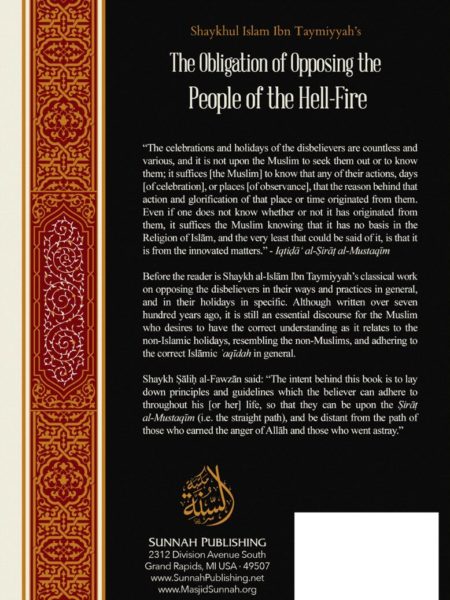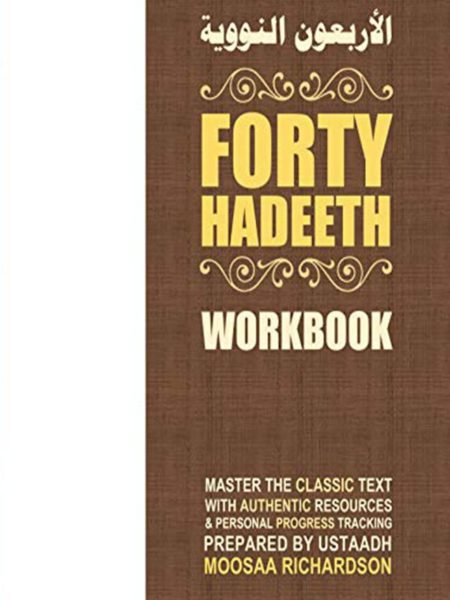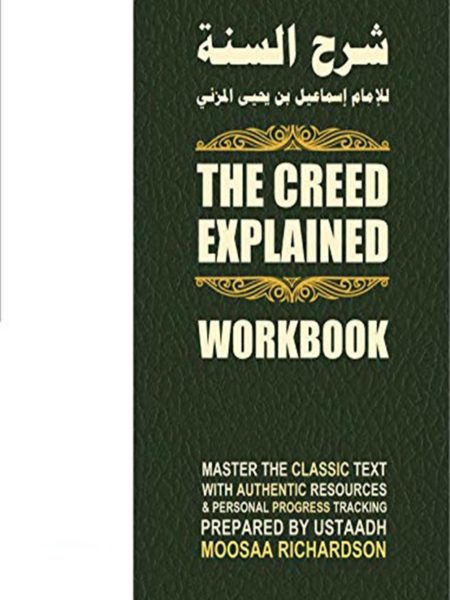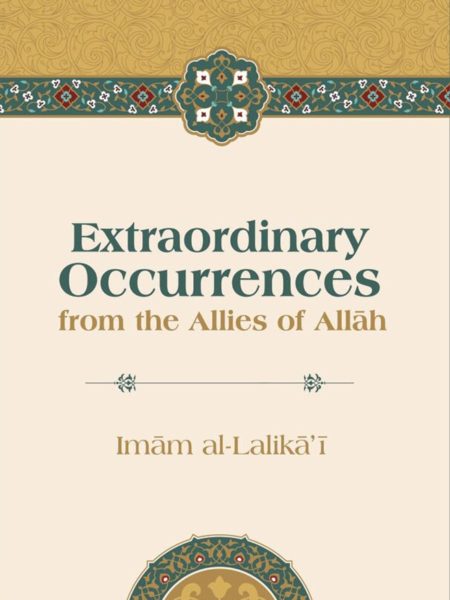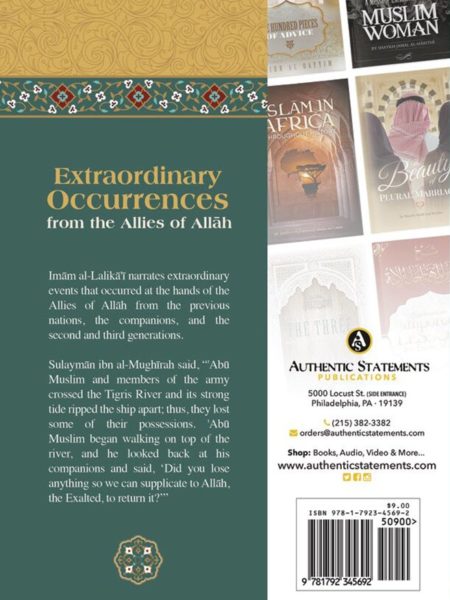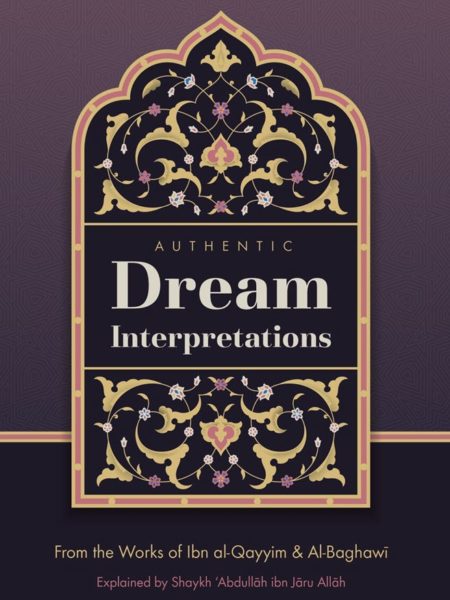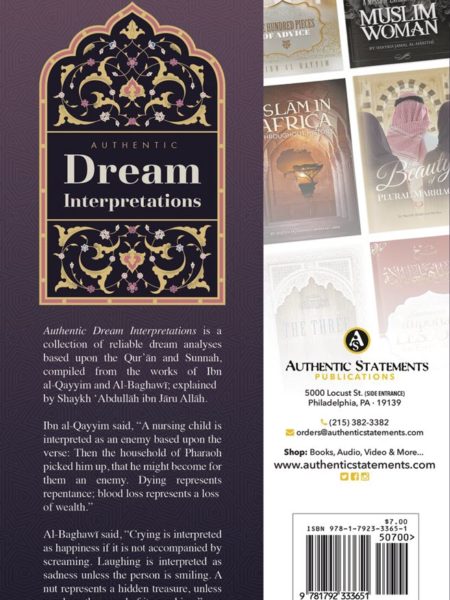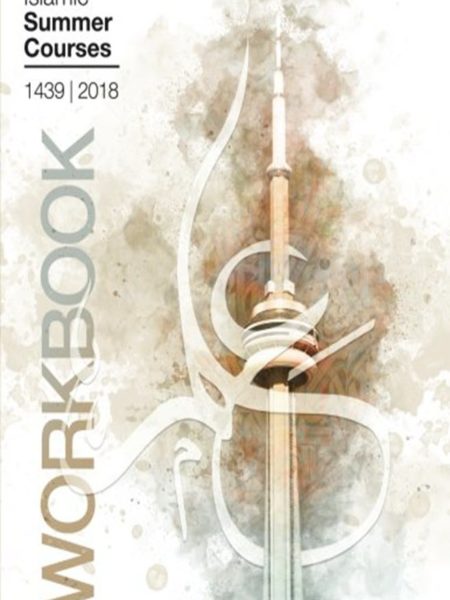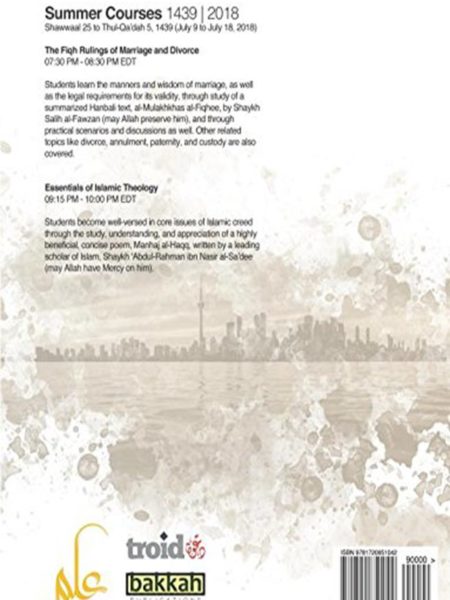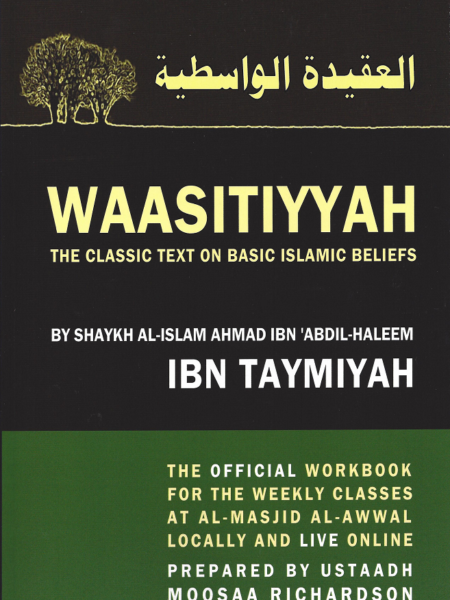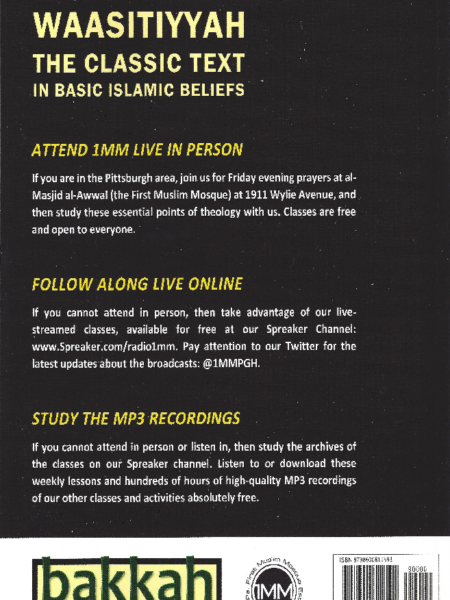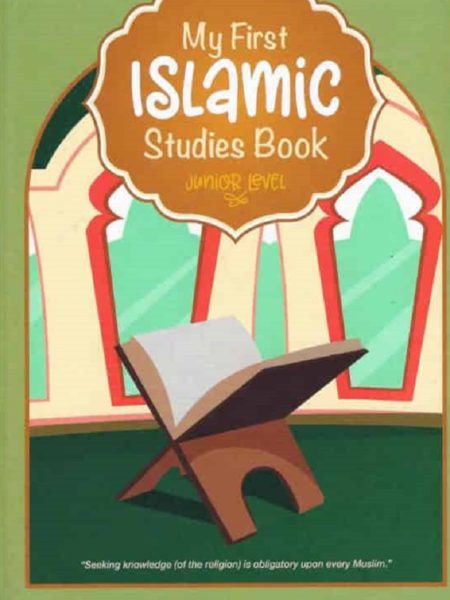-
The Ruling On The One Who Leaves Off The Prayer By Shaykh Muhammad Taqiud-Deen al-Hilali
$12.00 Add to cart -
-
The pristine beliefs of the early Muslims are preserved in this vitally important masterpiece written by one of the most outstanding scholars of our time.
Seven clear principles and their evidences from the Book and the Sunnah guide the reader through the confusion and false claims of the ignorant to the clarity of belief in Allaah’s Names accomplished by the righteous early scholars of Islaam.
Seven more principles and their evidences follow, giving the reader firm understanding of the correct beliefs about Allaah’s Attributes. Four more principles outline the correct approach in studying the related proofs and evidences.
All of this leads the reader into an enthralling series of refutations of the false notions of the Ash’aree sect, a text-by-text breakdown of how and why they went wrong in a careful and precise study of fifteen texts from the Book and the Sunnah. The beliefs of the Ash’aree sect are destroyed and the origins of their deviation are exposed for all to see.
“…A magnificent book… a clarification of the creed of the righteous Salaf concerning the Names and Attributes… great principles and collective benefits concerning the topic…”
– Shaykh Ibn BaazAdditional features of this translation:
Selected commentary from Shaykh Muhammad Amaan Jaamee (may Allaah have Mercy on him) and Shaykh ‘Ubayd al-Jaabiree (may Allaah preserve him) in the footnotes.
A list of evidences from the Book and the Sunnah that establish the 99 Names of Allaah mentioned by the author
-
In seeking to follow in the footsteps of some of the Imams of Islam who clarified matters of the Islamic belief system by way of poetry, such as Ibn Abee Dawud (d.316H) in his Haa’iyah, al-Nuniyyah by al-Qahtaani (d.383H), al-Laamiyyah attributed to Shaykhul Islam ibn Taymiyyah (d.728H), al-Kaafiyah al-Shaafiyah by Ibn al-Qayyim (d.751H), and Sullam al-Wusool fi ‘Ilm al-Usool by Shaykh Haafidh Al-Hakami (d.1377H) (May Allah have mercy on him), I have composed the following lines of poetry in the English language on some of the core beliefs of the Muslim. We ask Allah the Most High to make it beneficial for those who hear it and read it. Indeed, He is the All-Hearer, the One Who responds to the supplications.
-
This is the introduction to a short essay in jurisprudence (fiqh) by the Imām and Hāfiẓ ‘Abdullāh ibn ‘Abdur-Rahmān ibn Abī Zayd al-Qayrawānī upon the treatise of which he authored concerning the jurisprudence (fiqh) of Imām Mālik.
It has always been from the norm of the Salaf (X) that whenever they would author books in jurisprudence (fiqh) they would begin by clarifying the creed (‘aqīdah). Thus, they would divide it into [two parts]:
1. The greater affairs of jurisprudence (fiqh) al-akbar) which is understanding the correct creed (‘aqīdah).
2. The branches of jurisprudence (fiqh) al-furū’) which is the understanding of how to worship Allāh and dealings with the people.
-
-
-
-
NOT for independent self-study, this workbook is based on the classic text, Sharh as-Sunnah, by Aboo Ibraaheem Ismaa’eel ibn Yahyaa al-Muzani (d.264). Currently, this text is being studied at Masjid Ibn Baaz in South Philadelphia (USA) under Shaykh Hamzah ‘Abdur-Razzaaq (may Allah bless and preserve him).
-
Imām al-Lālikā’ī narrates extraordinary events that occurred at the hands of the Allies of Allāh from the previous nations, the companions, and the second and third generations
-
Authentic Dream Interpretations is a collection of reliable dream analyses based upon the Qur’ān and Sunnah, compiled from the works of Ibn al-Qayyim and Al-Baghawī; explained by Shaykh ‘Abdullāh ibn Jāru Allāh.
-
Al-Bukhari recorded a report from Abu Musa al-Ash’ari (may Allah be pleased with him) who narrated that the Messenger of Allah said, “The example of a person who makes dhikr of his Lord and a person who does not, is like that of a living and a dead person.”
-
-
WAASITIYYAH: The Classic Text on Basic Islamic Beliefs
The official workbook for Friday night classes at al-Masjid al-Awwal in Pittsburgh, and everywhere else through our online broadcasts. These classes are broadcast live for free. Then, high quality edited MP3 recordings replace the live versions, and you can download and listen at your convenience, in shaa’ Allah, from this link: https://www.spreaker.com/show/waasitiyyah-basic-muslim-creed
This workbook includes the fully-voweled Arabic text of Waasitiyyah and its English translation by Moosaa Richardson, split up over 100 lessons, a complete Arabic manuscript of the text, an isnaad (chain of transmission) back to Shaykh al-Islam Ibn Taymiyah, as well as the complete uninterrupted text of Waasitiyyah, the Arabic original, as wall as the English translation.
-
Islam gives great care and attention to seeking knowledge with the first verse to be revealed commanding to Read. It is the responsibility of every parent to ensure that their children are raised upon the correct Islamic teachings.
Cart

